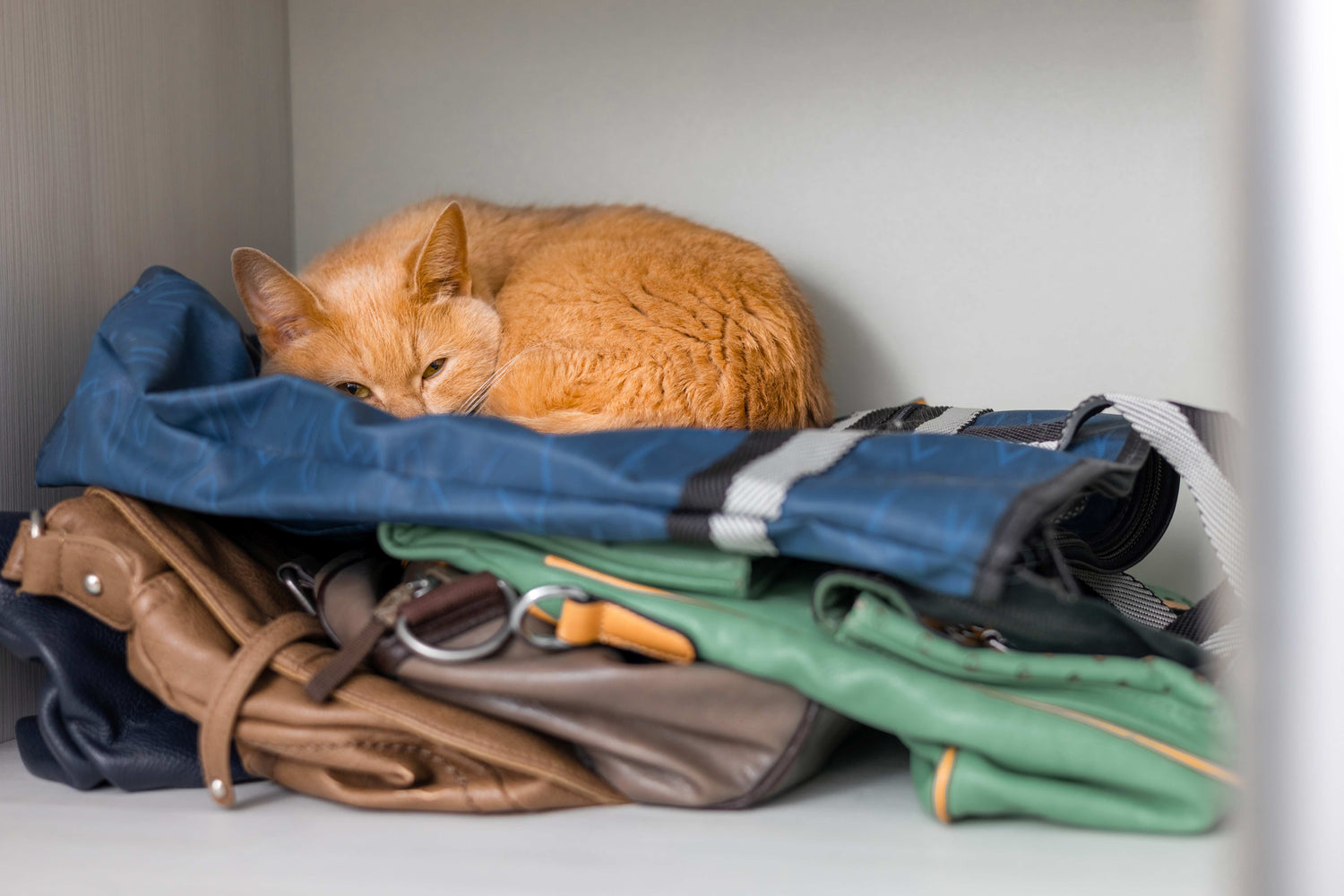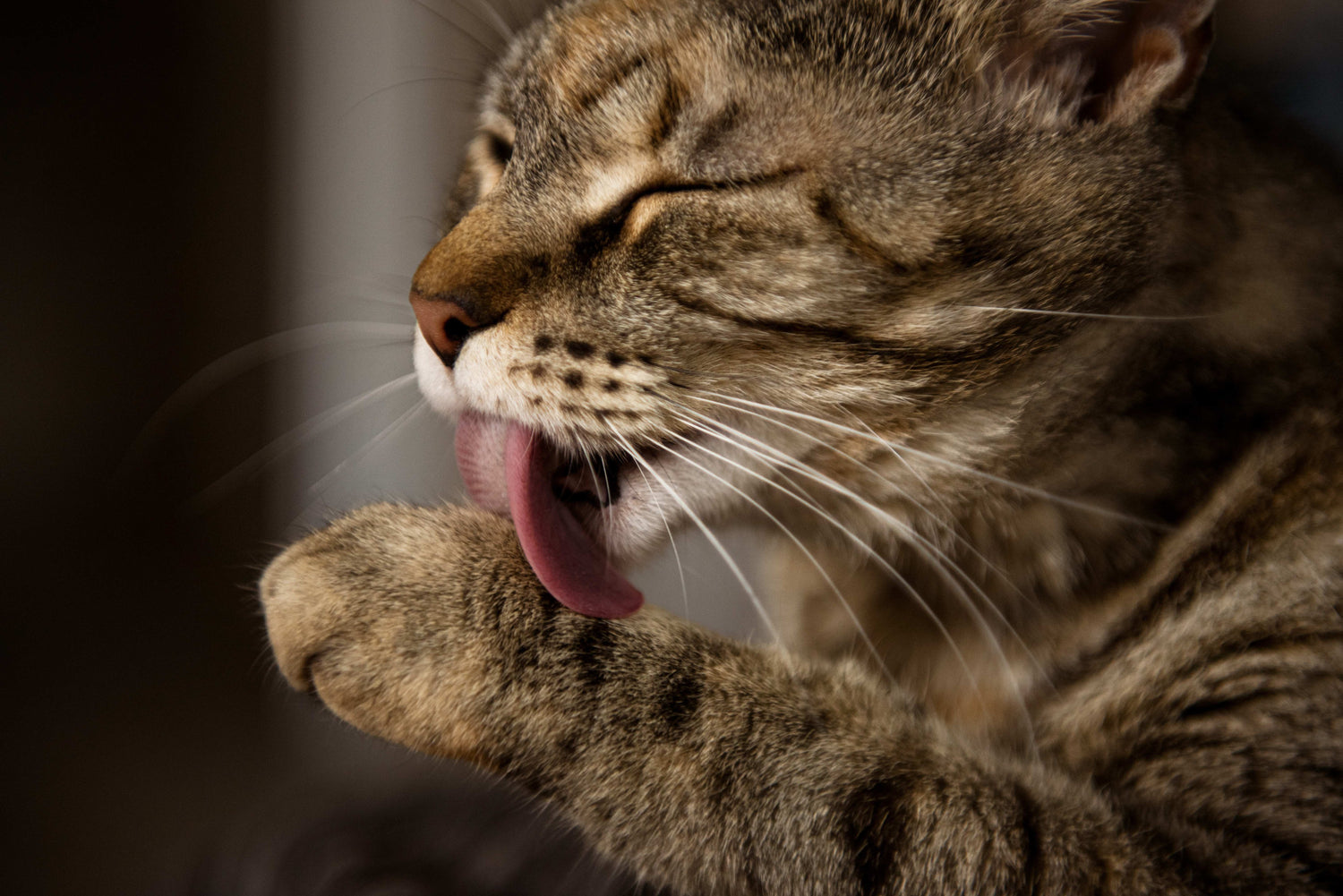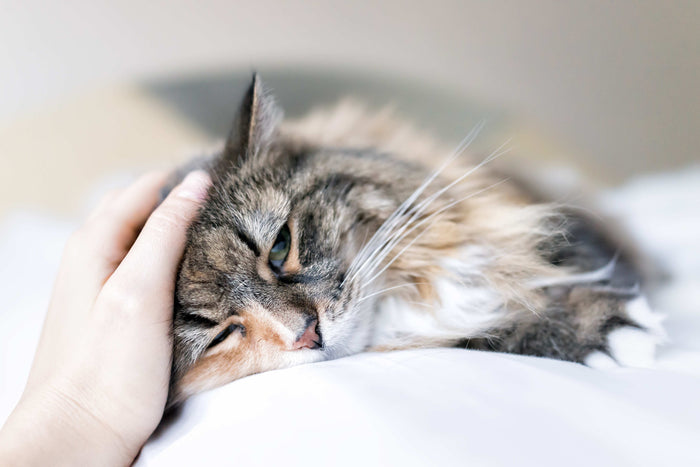Newsletter
Subscribe to Newsletter
Stay informed and always up to date with KATTOVIT. Be the first to hear about new products, discounts, advice texts, etc.
Cart
Your cart is empty

Symptome
Cat is sick and withdrawsIf your normally active cat suddenly becomes quiet, sleeps a lot and neglects to groom or eat, this could be a sign of illness. Find out here how discomfort manifests itself in cats, when you should act and which illnesses can lead to withdrawal.

Symptome
Cat constantly grooms itselfDoes your cat groom itself more often and more intensively than usual? Excessive grooming can indicate health problems. Find out here what illnesses or complaints are behind it and how you can help your cat.

Do you notice bald patches in your cat's fur? Such patches can indicate a variety of problems, from stress and parasites to allergies and serious illnesses. Find out how hair loss occurs, how you can help your cat and when a visit to the vet is necessary.

A slightly moist nose is normal in healthy cats and is no cause for concern. However, if there are changes in the consistency, color or amount of nasal secretions, this can indicate health problems. Find out here when a moist nose can indicate an illness and when a visit to the vet is necessary.

Symptome
Cat has inflammation in the mouthInflammation in your cat's mouth can be painful and indicate serious illnesses. Watch for symptoms and treat the inflammation promptly to avoid serious consequences. Learn more about causes and treatment options here.

If your cat suddenly starts urinating a lot, there could be a number of reasons for this. Although it is annoying, such mishaps are often not intentional. Find out here what increased urination can mean and when you should be concerned.

Symptome
Cat's mouth stinksUnpleasant bad breath in your cat can indicate various problems, from harmless to serious illnesses. Find out here when you should pay attention to bad breath, what the causes could be and how you can prevent bad breath and possible secondary illnesses.

Symptome
Frequent bowel movements in catsFrequent bowel movements in cats can provide important information about their health. Find out here what frequent defecation can mean and how you can draw conclusions about your cat's well-being by observing the stool.

Symptome
Loss of appetite in catsIf your cat refuses to eat, there can be many reasons for this, from illness to external influences. Find out here what reasons can be responsible for a loss of appetite, how you can help your cat yourself and when a visit to the vet is necessary.

Your cat's health is its most important asset - but unfortunately there are many illnesses and symptoms that can make life difficult for your pet. As experts in health-promoting diet food based on the latest veterinary research, it is our aim to enable every cat to live as long and healthy a life as possible.
Our guides on cat diseases will help you: Find out which pathogens and parasites there are, which symptoms you should look out for, how you can prevent infection with cat diseases and how you can help your furry friend quickly and effectively if the worst happens.
Special food for cats
Whether intolerance or gastrointestinal problems, kidney failure or struvite stones, diabetes or calorie deficit:
With the right food, you can nurture your cat back to health – and give her what she needs.
KATTOVIT Kidney-Renal
In case of renal insufficiency
KATTOVIT Sensitive
Hypoallergenic diet
KATTOVIT Gastro
gastrointestinal/pancreas
KATTOVIT Urinary
Struvite stone prophylaxis (FLUTD)
KATTOVIT rebuilding treatment
Particularly high energy content
KATTOVIT Diabetes
Regulation of glucose supply/weight
Proven Quality
Tested quality based on the latest veterinary findings
Always fresh
Guaranteed freshness, directly from the manufacturer - for the best care for your pet.
40 years of experience
More than 40 years of experience and expertise in the production of high-quality animal feed.